Principles of Transparency and Best Practice in Scholarly Publishing
Millah: Journal of Religious Studies is adherent to Principles of Transparency and Best Practice in Scholarly Publishing identified by the Committee on Publication Ethics (COPE), the Directory of Open Access Journals (DOAJ), the Open Access Scholarly Publishing Association (OASPA), and the World Association of Medical Editors (WAME). The fourth version of the principles and best practices was published on September 15, 2022 and was available at https://doi.org/10.24318/cope.2019.1.12. Source for the principles could also be found in the websites of COPE, DOAJ, OASPA, and WAME.
The journal applies principles and best practices to all published content. The journal also acknowledges that publishers and editors are responsible for promoting accessibility, diversity, equity, and inclusivity in all aspects of the publication. Editorial decisions in the journal are based on scholarly merit; not be affected by the origins of the manuscript, including the nationality, ethnicity, political beliefs, race, or religion of the authors. The journal ensures no policies create an exclusionary environment for anyone wanting to engage with the journal and will regularly assess the policies for inclusivity.
Principles of Transparency
Journal Content
1. Name of Journal
The journal’s name should:
- Be unique and not be one that is easily confused with another journal.
- Not mislead potential authors and readers about the journal's origin, scope, or association with other journals and organisations.
Adoption and implementation of the above principle and practice in Millah: Journal of Religious Studies can be explained as follow:
Current name of the journal is Millah: Journal of Religious Studies. This name was based on International Standard Serial Number (ISSN) provided by Pusat Nasional ISSN Indonesia on April 18, 2022 and is available at https://issn.brin.go.id/terbit/detail/1455943284. The current name consists of Millah as title and Journal of Religious Studies as subtitle. When the journal was published for the first time, the title used was Millah: Jurnal Studi Agama. The title Millah: Jurnal Studi Agama was lastly used in Vol. 21, No. 2, published on February 2022. After this issue, Millah: Journal of Religious Studies was used as the journal title.
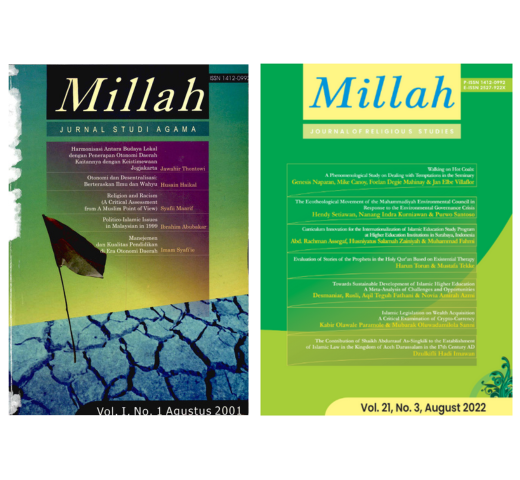
The journal was firstly published on August 2001, making it among earliest journal published in Indonesia for religious studies. The journal is also famous among religious studies researchers for its quality in national level as proved by national accreditation. In 2004, the journal was accredited by SK No. 39/DIKTI/Kep/2004. In 2007, the journal was reaccredited by SK Dirjen Dikti Diknas RI No. 167/DIKTI/Kep/2007. In 2010, the journal was reaccredited by SK Dirjen Dikti Diknas RI No. 64a/DIKTI/Kep/2010.
In 2017, the Ministry of Research, Technology, and Higher Education launched Sinta (Science and Technology Index) as a new platform for showcasing research productivity in Indonesia, including journals’ accreditation. In this first iteration, the journal was categorized as SINTA 3. In 2020, the journal was reaccredited using ARJUNA (Akreditasi Jurnal Nasional) and successfully categorized SINTA 2 based on on Keputusan Menteri Riset dan Teknologi/Kepala Badan Riset dan Inovasi Nasional Republik Indonesia Nomor 200/M/KPT/2020 Tentang Peringkat Akreditasi Jurnal Ilmiah Periode III Tahun 2020.
Based on the explanation above, the journal will not mislead potential authors and readers about the journal's origin, scope, or association with other journals and organisations.
2. Website
- Websites should be properly supported and maintained, with particular attention given to security aspects that help protect users from viruses and malware. As a minimum, websites should use https and not http, and all traffic should be redirected through https.
- Those responsible for the website should apply web standards and best ethical practices to the website's content, presentation, and application.
- The website should not contain information that might mislead readers or authors.
- The website should not copy another journal/publisher’s site, design, or logo.
- If any text is copied from another website, an acknowledgement to the source website should be declared.
In addition to the requirements outlined above, the following items should be clearly displayed:
- Aims and scope.
- The target readership of the journal.
- The types of manuscripts the journal will consider for publication (for example, that multiple or redundant publication is not allowed).
- Authorship criteria.
- ISSNs (separate for print and electronic versions).
Adoption and implementation of the above principle and practice in Millah: Journal of Religious Studies can be explained as follow:
The journal website is currently using Open Journal Systems 3.3.0.10. Open Journal Systems is developed by The Public Knowledge Project of Simon Fraser University. This version of OJS 3 is an upgrade from OJS 2 that has been retired and no longer supported. The upgrading process from OJS 2 to OJS 3 was managed by Universitas Islam Indonesia with PT. Inovasi Informatik Sinergi or Open Journal Theme (OJT) as partner. The process of upgrading the OJS was conducted between December 2021 until February 2022.
OJT as the partner in the upgrading has previously been involved in many journals’ upgrading process. After the upgrading, OJT also installs a new theme Academic Pro Extended Version. Furthermore, OJT also adds some plugins for quality improvements of the journal: Google Scholar Citation Plugin, Published by Year - OJS 3 Plugin, Most Cited Crossref, and other.
3. Publishing Schedule
A journal’s publishing frequency should be clearly described, and the journal must keep to its publishing schedule unless there are exceptional circumstances.
Adoption and implementation of the above principle and practice in Millah: Journal of Religious Studies can be explained as follow:
The journal publishes two issues per year in February and August. Vol. 1, No. 1, as first issue, was published on August 2001 and then followed by Vol. 1, No. 2 that was published on February 2002. This type of schedule was based on the academic calendar that started around July and thus effected financial budgeting of the journal. This type of schedule was commonly used by many journals at the time.
However, after some discussion with national journal expert and some changes in budgeting in the university, the schedule for the journal is changed. The change was started on August 2022 issue. Normally, this issue should be Vol. 21, No. 1. However, the issue was changed to Vol. 21, No. 3 on August 2022 so that the issue published on February 2023 was a new issue Vol. 22, No. 1, February 2023. This numbering in journal schedule is considered better choice to ensure the common system currently applied by most journals in Indonesia.
Although the issue of the journal is scheduled on February and August, publication of articles can be based on continuous publication started from August 2022. This indicates that as soon as an article is ready to be published, it will be promptly released online rather than waiting for other articles in the issue to be completed. As a result, readers will have quicker access to the article's final edition.
4. Archiving
A journal's plan for electronic backup and long term digital preservation of the journal content, in the event that the journal and/or publisher stops operating, should be clearly indicated. Examples include PMC and those listed in the Keepers Registry.
Adoption and implementation of the above principle and practice in Millah: Journal of Religious Studies can be explained as follow:
Articles published by the journal are archived in the following services:
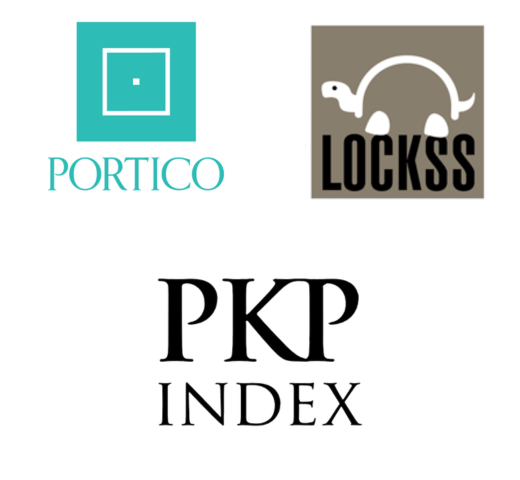
5. Copyright
- The copyright terms for published content should be clearly stated on the website and in the content.
- The copyright terms should be separate and distinct from the copyright of the website.
- The copyright holder should be named on the full text of all published articles (HTML and PDF).
- If the copyright terms are described in a separate form, this should be easy to find on the website and available to all.
Adoption and implementation of the above principle and practice in Millah: Journal of Religious Studies can be explained as follow:
The copyright terms for published content in this journal:
- The copyright of each article is retained by the author(s).
- The author grants the journal the first publication rights with the work simultaneously licensed under the Creative Commons Attribution-ShareAlike 4.0 International, allowing others to share the work with an acknowledgment of authorship and the initial publication in this journal.
- Authors may enter into separate additional contractual agreements for the non-exclusive distribution of published journal versions of the work (for example, posting them to institutional repositories or publishing them in a book), with acknowledgment of their initial publication in this journal.
- Authors are permitted and encouraged to post their work online (For example in the Institutional Repository or on their website) before and during the submission process, as this can lead to productive exchanges, as well as earlier and larger citations of published work.
- Articles and all related material published are distributed under a Creative Commons Attribution-ShareAlike 4.0 International License.
6. Licensing
- Licensing information should be clearly described on the website.
- Licensing terms should be indicated on the full text of all published articles (HTML and PDF).
- Content designated as Open Access must use an open licence.
- Licensing policies about the posting of author manuscripts and published articles in third party repositories should be clearly stated.
If Creative Commons licences are used, then the terms of that licence should also link to the correct licence on the Creative Commons website.
Adoption and implementation of the above principle and practice in Millah: Journal of Religious Studies can be explained as follow:
The published content in this journal is licensed under a Creative Commons Attribution-ShareAlike 4.0 International License.
You are free to:
Share — copy and redistribute the material in any medium or format
Adapt — remix, transform, and build upon the material for any purpose, even commercially
Under the following terms:
Attribution — You must give appropriate credit, provide a link to the license, and indicate if changes were made. You may do so in any reasonable manner, but not in any way that suggests the licensor endorses you or your use.
ShareAlike — If you remix, transform, or build upon the material, you must distribute your contributions under the same license as the original
No additional restrictions — You may not apply legal terms or technological measures that legally restrict others from doing anything the license permits
Journal practices
7. Publication Ethics and Related Editorial Policies
A journal should have policies on publication ethics (for example, COPE's Core Practice guidance).
These should be visible on its website, and should refer to:
- Journal’s policies on authorship and contributorship.
- How the journal will handle complaints and appeals.
- How the journal will handle allegations of research misconduct.
- Journal’s policies on conflicts of interest.
- Journal’s policies on data sharing and reproducibility.
- Journal's policy on ethical oversight.
- Journal's policy on intellectual property.
- Journal's options for post-publication discussions.
- Journal’s policies on corrections and retractions.
Editors and publishers are responsible for ensuring the integrity of the scholarly literature in their journals and should ensure they outline their policies and procedures for handling such issues when they arise. These issues include plagiarism, citation manipulation, and data falsification/fabrication, among others. Neither the journal’s policies nor the statements of its editors should encourage such misconduct, or knowingly allow such misconduct to take place. In the event that a journal's editors or publisher are made aware of any allegation of research misconduct relating to a submitted or published article in their journal, the editor or publisher should follow COPE's guidance (or equivalent) in dealing with allegations.
Adoption and implementation of the above principle and practice in Millah: Journal of Religious Studies can be explained as follow:
The journal's policies on publication ethics follow COPE's Core Practices that were developed in 2017. The journal's policies on publication ethics can be explained as follow:
Journal’s Policies on Authorship and Contributorship
Authorship
The journal follows the International Committee of Medical Journal Editors Recommendations for the Conduct, Reporting, Editing, and Publication of Scholarly Work in Medical Journals (Updated May 2023). Authorship is based on the following four criteria:
- Substantial contributions to the conception or design of the work; or the acquisition, analysis, or interpretation of data for the work; AND
- Drafting the work or revising it critically for important intellectual content; AND
- Final approval of the version to be published; AND
- Agreement to be accountable for all aspects of the work in ensuring that questions related to the accuracy or integrity of any part of the work are appropriately investigated and resolved.
An author should be able to specify which co-authors are responsible for particular other portions of the work in addition to being accountable for the parts of the work he or she has done. Furthermore, authors should have faith in the integrity of their co-authors' contributions.
The journal includes only one corresponding author per article.
Authors should meet all four ICMJE criteria for authorship, and all who meet the four criteria should be identified as authors.
The journal recognises only natural persons over 18 years of age as authors. Thus, authorship by an artificial intelligence is not considered. Author using an artificial intelligence should inform the details in the acknowledgment.
Contributorship
The journal follows the National Information Standards Organization's CRediT (Contributor Roles Taxonomy). CRediT is a broad classification system that consists of 14 roles and is used to depict the roles usually taken on by those who contribute to research works. Each role outlines the particular contribution made by the contributor to the academic output.
- Conceptualization: Ideas; formulation or evolution of overarching research goals and aims.
- Data curation: Management activities to annotate (produce metadata), scrub data and maintain research data (including software code, where it is necessary for interpreting the data itself) for initial use and later re-use.
- Formal analysis: Application of statistical, mathematical, computational, or other formal techniques to analyse or synthesize study data.
- Funding acquisition: Acquisition of the financial support for the project leading to this publication.
- Investigation: Conducting a research and investigation process, specifically performing the experiments, or data/evidence collection.
- Methodology: Development or design of methodology; creation of models.
- Project administration: Management and coordination responsibility for the research activity planning and execution.
- Resources: Provision of study materials, reagents, materials, patients, laboratory samples, animals, instrumentation, computing resources, or other analysis tools.
- Software: Programming, software development; designing computer programs; implementation of the computer code and supporting algorithms; testing of existing code components.
- Supervision: Oversight and leadership responsibility for the research activity planning and execution, including mentorship external to the core team.
- Validation: Verification, whether as a part of the activity or separate, of the overall replication/reproducibility of results/experiments and other research outputs.
- Visualization: Preparation, creation and/or presentation of the published work, specifically visualization/data presentation.
- Writing – original draft: Preparation, creation and/or presentation of the published work, specifically writing the initial draft (including substantive translation).
- Writing – review & editing: Preparation, creation and/or presentation of the published work by those from the original research group, specifically critical review, commentary or revision – including pre- or post-publication stages.
Journal's Policies on Handling Complaints and Appeals
The journal’s policy for handling the complaints is in accordance with the guidelines published by the Committee on Publishing Ethics (COPE).
Before sending complaint to the Editor in Chief, through [email protected] and [email protected], the journal suggest complainant to contact the corresponding author and try to resolve the matter directly. However, the complainant can also directly send the complaint to the Editor in Chief in cases where there are valid reasons for not contacting the authors, if the authors were unresponsive when contacted, or if the discussion in the first instance did not resolve the concerns. When contacting the Editor in Chief, the following procedure should be followed:
- The complainant who would like to raise a concern or complaint regarding a published article in the journal should email the Editor in Chief through [email protected] and [email protected], with a subject specifying the complaint. The letter should contain the following information:
- article [title, authors, journal, publication date, DOI]
- complainant [title, current affiliation, position, other proof of expertise]
- complaint [academic/scientific validity, ethical or legal; summary of main points; adverse consequences anticipated]
- details of the complainant’s previous contact with the author or authors of the article
- statement that the complainant has no conflict of interest, or declaring any actual or potential conflict(s) of interest.
- an annotated PDF of the article should be provided that clearly marks the passages concerned and the reasons why they are of concern.
- Only complaints regarding the scientific/academic validity or ethical or legal aspects of the work or its review will be considered. Complaints will not be considered if they contain personal criticisms of the authors, inappropriate or derogatory language, or where the complainant has used a false or misleading identity. All complaints will be investigated, including anonymous complaints. However, unless a specific and valid reason can be provided for wishing to remain anonymous, Frontiers reserves the right not to update the complainant on the outcome of the investigation. Complainants can request the Editor in Chief to handle their complaint confidentially to the extent that this can be accommodated by our internal protocols.
- The Editor in Chief, if necessary, can consult with Advisory Editor and Associate Editor, to decide whether there are sufficient grounds for the complaint to be considered further. If further investigation is warranted, then the author(s) will be informed of the complaint. In certain cases, the Editor in Chief may publish an Expression of Concern indicating that serious objections have been raised. The Editor in Chief may also close the case as unsubstantiated at this stage. In this event, the complainant is informed that no further action will be taken.
- For complaints having legal implications, the journal will seek advice from its legal counsel, who might also contact the editors, the complainant, or the authors for further information. The journal reserves the right to retract articles that are, or are considered likely to be, in violation of applicable legal principles.
- For ethical concerns, the journal will execute the decision of the editors, who will follow widely accepted guidelines such as those by COPE as closely as possible, including concerns around suspicions of data manipulation and data fabrication; if it appears probable that such falsification has taken place, the case can be referred to the authors' institutions for investigation.
- If the complaint is upheld by the Editor in Chief, the resulting investigation can result in any of the outcomes detailed below:
- The complaint is deemed unsubstantiated – No further action is taken, and the complainant is informed that the case has been closed. Further communication by the complainant on the subject will only be considered if additional information to substantiate the concerns is brought forward.
- Investigation into the complaint identifies errors that justify the publication of a corrigendum – The Editor in Chief will detail to the authors the points needed to be addressed in the corrigendum. The journal will work with the authors to ensure a corrigendum is published that satisfactorily deals with the issues identified in the Editor in Chief's decision. If the authors refuse, the Editor in Chief will proceed without the authors' consent to correct the literature and/or may initiate retraction.
- Investigation into the complaint reveals author bias on a contentious or controversial subject – The Editor in Chief decides on the most appropriate action to address the concerns, which can range from retraction to, for example, inviting a commentary on the article providing a balanced and objective context. The Editor in Chief will decide on the potential authors to be invited to write the commentary.
- Investigation into the complaint indicates that a retraction needs to be considered and further examined – An Expression of Concern may be published to notify readers of an ongoing investigation. The Editor in Chief may consult further experts, or the institutions concerned to reach a decision and under exceptional circumstances may form a committee to ensure a broader representation of views.
- Investigation into the complaint exposes an irrefutable reason for a retraction – The Editor in Chief endeavors to work together with the authors to retract the article but can do so even without the authors’ consent. The COPE retraction guidelines will be followed where applicable. A retraction notice will be published detailing the reasons for the retraction.
- Complainants should note that investigations may take some time to conduct. The journal is under no obligation to divulge the status of the investigation until a decision has been reached by the Editor in Chief. When a notice is published, it will be brought to the attention of the complainant; The journal has no obligation to provide the complainant with additional details concerning the decision. Furthermore, the journal reserves the right to cease communication with complainants who do not remain cordial in their contact with the Editor in Chief.
The journal’s policy for handling the authors’ appeals against a rejection can be explained as follow:
The authors have the right to appeal against a rejection from the journal. An appeal is an extension of the peer review process and the same ethical standards apply. Thus, authors you should not submit an appeal whilst the article is under consideration by another publication.
The authors lodging an appeal should contact the Editor in Chief through [email protected] and [email protected] outlining the case for reconsideration. To be considered, appeals must directly address the reason(s) given for the initial rejection decision. If reviewer reports were included with the decision letter, then these criticisms must be responded to in the appeal. Appeals that do not address reviewers’ criticisms, are dismissive of the reviewer comments, or contain offensive language will not be considered.
Appeals that meet the requirements above are sent to Advisory Editor for consideration. If successful, an appeal can lead to the article’s re-entering the peer review process. The article may ultimately be published following any revisions deemed necessary by the Advisory Editor. The authors should not submit a revised version of the article until the appeal process is complete. If the appeal is rejected, then the original rejection decision is upheld and no further consideration of that article is possible.
Journal's Policies on Handling Allegations of Research Misconduct
The journal’s policy for managing allegations of research misconduct is based on the guidelines of the Committee on Publication Ethics (COPE), the World Association of Medical Editors (WAME), and the International Committee of Medical Journal Editors (ICMJE).
Authors are required to read the journal’s author guidelines and policies carefully and to adhere to the terms before submission. Research misconduct refers to unethical behavior or actions that undermine the integrity and credibility of scientific research. The most common types of research misconduct include plagiarism, fabrication or falsification of data, and inappropriate authorship practices.
Plagiarism involves using someone else's work, ideas, or words without proper acknowledgment. It can occur in various forms, such as copying sections of text, paraphrasing without citation, or presenting someone else's ideas as one's own. Fabrication or falsification of data involves the deliberate manipulation or invention of research findings or experimental data, which can lead to false conclusions or misleading scientific claims. Inappropriate authorship practices occur when individuals are credited as authors without having made a significant contribution to the research or when deserving contributors are omitted from authorship.
Editors in Chief plays a crucial role in preventing research misconduct during the peer review process. Several measures implemented to safeguard the integrity of the research and uphold ethical standards are:
- Promote awareness: Editor in Chief inform authors, reviewers, and editorial board members about research misconduct, ethical guidelines, and responsible conduct of research for the journal through clear instructions, guidelines, and other communication means.
- Peer reviewer selection: Editor in Chief carefully select peer reviewers who have expertise in the relevant field and are committed to upholding ethical standards. Reviewers should be aware of potential signs of misconduct and be encouraged to report any concerns.
- Thorough review process: Editor in Chief ensures a rigorous and transparent peer review process. Reviewers should scrutinize the submitted manuscripts for potential misconduct, including plagiarism, data manipulation, or questionable research practices.
- Use plagiarism detection software: Editor in Chief employs TurnItIn as a plagiarism detection tool to screen submissions for potential instances of plagiarism or text recycling. It helps identifying cases of unacknowledged or improper use of existing work.
- Cross-check data and results: Editor in Chief encourages reviewers to examine the accuracy and validity of the presented data and results.
Although the Editor in Chief has made various efforts to anticipate research misconduct in the journal, some issues may still arise. Therefore, the journal is open to receiving reports from readers regarding potential research misconduct. The Editor in Chief operates on the principle of presumption of innocence when receiving reports of potential research misconduct from readers until they are proven to be true.
Report of research misconduct may be related to a published article or a manuscript under peer-review process. The procedure for the application and management of complaints of author misconduct should proceed with sensitivity, tact, in confidence, and in the following manner:
- The Editor in Chief receives a complaint through email that an article submitted to or published in the journal is suspected of containing research misconduct.
- The complainant needs to clearly indicate the specific manner and detail of misconduct; for example, in a case of plagiarism, the plagiarized paragraph should be clearly highlighted and the original and suspected articles should be referred to clearly.
- The Editor in Chief will conduct an investigation, during which time the section editor of the particular suspected articles and the corresponding author(s) of the suspected article will be in contact. The Editor in Chief can also invite any Advisory Editor or Associate Editor in the process.
- The corresponding author(s) will be asked to provide an explanation with factual statements and any available evidence.
- If the author(s) of the suspected article accepts the misconduct complaint, the Editor in Chief will take the following actions depending on the situation:
- If the article has been published, an erratum or retraction may be necessary to remedy the situation. However, there may still be disagreement concerning the appropriate wording of the description.
- If the misconduct is reported during the review process, the review process may continue, with the author(s) making the relevant changes.
- In the case of nonresponse in the stipulated time or an unsatisfactory explanation, the article may be permanently retracted or rejected. Before making a decision, confirmation will be sought from the experts of the relevant institution or other authorities as required.
- The complainant will be informed of the outcome once the issue is resolved.
- The complaint case will thereupon be considered concluded.
The journal is adherent to the principles of the and is currently applying membership to the COPE. Once the application is accepted, some information on this matter will be updated.
Journal’s Policies on Conflicts of Interest
The journal’s policy for conflicts of interest or competing interests is based on the guidelines of the Committee on Publication Ethics (COPE).
A conflict of interest can also be known as ‘competing interest’. A conflict of interest can occur when the authors, or their employer, or sponsor have a financial, commercial, legal, or professional relationship with other organizations, or with the people working with them, that could influence the research.
When the authors submit paper to the journal, full disclosure is required. The Editor in Chief will firstly use this information to inform initial editorial decision. Then, after the acceptance, there will be a published disclosure to assist readers in evaluating the article. The Editor in Chief may decide not to publish the paper on the basis of any declared conflict of interest.
The author can declare the conflict of interest in the cover letter or on the manuscript submission form in the journal’s Open Journal System.
Conflict of interests can be financial or non-financial in nature. To maintain transparency, any associations which can be perceived by others as a conflict of interest must also be declared.
Some examples of financial conflicts of interests include:
- Employment or voluntary involvement
- Collaborations with advocacy groups relating to the content of the article
- Grants from an entity, paid to the author or organization
- Personal fees received by the authors as honoraria, royalties, consulting fees, lecture fees, or testimonies
- Patents held or pending by the authors, their institutions, funding organizations, or licensed to an entity, whether earning royalties or not
- Royalties being received by the authors or their institutions
- Stock or share ownership
- Benefits related to the development of products as an outcome of the work
Examples of non-financial conflicts of interests:
- Receipt of drugs, specialist equipment, tools, computer programs, or digital applications
- Access to data repositories, archival resources, museum collections, by an entity that might benefit, or be at a disadvantage financially or reputationally from the published findings
- Holding a position on the boards of industry bodies or private companies that might benefit, or be at a disadvantage financially or reputationally from the published findings
- Writing assistance or administrative support from a person or organization that might benefit, or be at a disadvantage from the published findings
- Personal, political, religious, ideological, academic and intellectual competing interests which are perceived to be relevant to the published content
- Involvement in legal action related to the work
If there are no competing interests to declare, authors should include a statement to the article to confirm that there are no relevant financial or non-financial competing interests to report.
Journal’s Policies on Data Sharing and Reproducibility
Journal’s policies on data sharing and reproducibility are based on on the guidelines of the Committee on Publication Ethics (COPE).
The journal strongly encourages authors to include as supplementary material data sets and code, if any, that demonstrate the results shown in their final article. The journal policy encouraging the authors to share and make the data open is applicable only where this does not violate protection of human subjects or other valid subject privacy concerns. The authors are also encouraged to cite data and provide a data availability statement in the end of the manuscript.
A data availability statement (also sometimes called a ‘data access statement’) tells the reader where the research data associated with a paper is available, and under what conditions the data can be accessed. They also include links (where applicable) to the data set. The table below contains template statements that the authors can use or adapt. This is not an exhaustive list however, and an individual data set might warrant a different type of statement
|
Availability of data |
Template for data availability statement |
Policy |
|
Data openly available in a public repository that issues datasets with DOIs |
The data that support the findings of this study are openly available in [repository name e.g “figshare”] at http://doi.org/[doi], reference number [reference number]. |
All |
|
Data openly available in a public repository that does not issue DOIs |
The data that support the findings of this study are openly available in [repository name] at [URL], reference number [reference number]. |
All |
|
Data derived from public domain resources |
The data that support the findings of this study are available in [repository name] at [URL/DOI], reference number [reference number]. These data were derived from the following resources available in the public domain: [list resources and URLs] |
All |
|
Data available within the article or its supplementary materials |
The authors confirm that the data supporting the findings of this study are available within the article [and/or] its supplementary materials. |
Basic, Share upon Request |
|
Data generated at a central, large-scale facility, available upon request |
Raw data were generated at [facility name]. Derived data supporting the findings of this study are available from the corresponding author [initials] on request. |
Basic, Share upon Request |
|
Embargo on data due to commercial restrictions |
The data that support the findings will be available in [repository name] at [URL / DOI link] following a [6 month] embargo from the date of publication to allow for commercialization of research findings. |
Basic, Share upon Request |
|
Data available on request due to privacy/ethical restrictions |
The data that support the findings of this study are available on request from the corresponding author, [initials]. The data are not publicly available due to [restrictions e.g. their containing information that could compromise the privacy of research participants]. |
Basic, Share upon Request |
|
Data subject to third party restrictions |
The data that support the findings of this study are available [from] [third party]. Restrictions apply to the availability of these data, which were used under license for this study. Data are available [from the authors / at URL] with the permission of [third party]. |
Basic, Share upon Request |
|
Data available on request from the authors |
The data that support the findings of this study are available from the corresponding author, [author initials], upon reasonable request. |
Basic, Share upon Request |
|
Data sharing not applicable – no new data generated |
Data sharing is not applicable to this article as no new data were created or analyzed in this study. |
All |
|
Non-digital data available |
Non-digital data supporting this study are curated at [add location]. |
Basic |
|
Data not available due to [ethical/legal/commercial] restrictions |
Due to the nature of the research, due to [ethical/legal/commercial] supporting data is not available. |
All |
|
Data not available - participant consent |
The participants of this study did not give written consent for their data to be shared publicly, so due to the sensitive nature of the research supporting data is not available. |
Journal's Policies on Ethical Oversight
The journal’s policies for ethical oversight are based on the guidelines of the Committee on Publication Ethics (COPE). According to the COPE, “ethical oversight should include, but is not limited to, policies on consent to publication, publication on vulnerable populations, ethical conduct of research using animals, ethical conduct of research using human subjects, handling confidential data and ethical business/marketing practices.” Based on this, the journal‘s policies can be explained as follow:
Consent to Publication
The journal’s submission has consisted information that the authors checklist including their consent to publish, copyright and license, and others. Thus, any submission received should be considered based on the authors’ consent.
Publication on Vulnerable Populations
The journal recognizes the importance of research on vulnerable populations and the need to shed light on their unique challenges and experiences. We welcome scholarly contributions in this area, provided that all ethical considerations and guidelines are rigorously followed throughout the research process. It is crucial to ensure that studies involving vulnerable populations are conducted with the utmost care, respect, and protection of the rights and well-being of the individuals involved. Researchers must obtain appropriate informed consent, maintain confidentiality, and address any potential risks or harm that may arise from their research. The journal expects authors to adhere to the highest ethical standards and follow established guidelines when conducting studies on vulnerable populations.
In instances where the Editor-in-Chief believes that a publication on vulnerable populations may have legal implications, the matter will be carefully reviewed. The Editor-in-Chief, in consultation with the authors and advisory editor, may discuss the potential legal aspects and determine the best course of action. Depending on the scope and nature of the article, the Editor-in-Chief may also engage with official government bodies at the national or international level to ensure compliance with legal requirements and protect the rights of the vulnerable populations under study.
The journal remains committed to promoting responsible research practices and addressing the needs and concerns of vulnerable populations. By maintaining a rigorous ethical framework, we aim to contribute to the advancement of knowledge and the well-being of these populations, while upholding the principles of integrity, dignity, and social responsibility.
Ethical Conduct of Research Using Animals
The journal recognizes the importance of ethical conduct in research involving animals and is committed to promoting the responsible and humane use of animals in scientific studies. As part of our commitment to upholding ethical standards, we require authors to provide information about the appropriate institutional review board (IRB) or animal care and use committee (IACUC) approval in their submissions or within the article itself.
For studies involving animals, authors should include details about the approval obtained from the relevant institutional or ethical review board responsible for overseeing animal research. This information should demonstrate that the study adhered to established guidelines for the ethical treatment of animals, such as the principles outlined in the Guide for the Care and Use of Laboratory Animals.
By requiring this information, we aim to ensure that research published in the journal meets the highest ethical standards in animal welfare. We recognize the importance of respecting the rights and well-being of animals used in scientific research and expect authors to uphold these principles in their work. Transparency and accountability in reporting the ethical aspects of animal research contribute to the advancement of knowledge while promoting responsible conduct in the scientific community.
Ethical Conduct of Research Using Human Subjects
The journal recognizes the paramount importance of ethical conduct in research involving human subjects. We are committed to upholding the highest ethical standards and promoting the well-being, rights, and privacy of individuals participating in research studies. In line with this commitment, we require authors to provide an institutional review board (IRB) approval and a thorough explanation of how informed consent was obtained from all participants in their research involving human subjects.
Informed consent is a fundamental ethical principle in research involving human subjects. Authors should ensure that participants are fully informed about the purpose, procedures, risks, and potential benefits of the study, and that they voluntarily provide their consent to participate. If there is any reasonable possibility that complete anonymity cannot be maintained, informed consent should be obtained from participants.
Respecting the privacy and confidentiality of human subjects is of utmost importance. Authors should never violate the privacy of individuals without prior informed consent. When reporting study data, identifying information should be excluded unless it is essential for the purposes of the study and the subject (or their legal representative) has given prior written informed consent.
In cases where informed consent has been obtained, it is crucial for authors to include documentation of this consent in their articles. By adhering to these ethical guidelines, we aim to ensure the protection and welfare of human subjects involved in research studies and maintain the integrity of scientific research.
Handling Confidential Data
The journal is committed to upholding the highest standards of ethical conduct and protecting the confidentiality of data. Authors, reviewers, and editors are expected to handle confidential data with utmost care and in compliance with relevant regulations and guidelines. Confidential data should be securely stored and transmitted, accessible only to authorized individuals involved in the peer-review process. Any potential conflicts of interest related to the handling of confidential data must be disclosed. In case of concerns regarding data privacy or breaches, the journal will initiate appropriate investigations and take necessary actions to safeguard confidentiality and ensure integrity in research and publication.
Ethical Business/Marketing Practices
The journal is committed to upholding ethical standards in all aspects of its operations, including the publication process. The journal firmly believes in fostering a fair and transparent environment that promotes scholarly excellence and discourages any practices that may exploit authors or compromise the integrity of academic research. As part of the commitment to ethical business and marketing practices, the journal does not engage in any activities that attract authors to publish their work at high costs or under misleading circumstances. The journal maintains a clear and equitable publishing process that is free from undue influence or financial exploitation.
It is important for authors to be aware that the journal takes no responsibility for any offers or solicitations from individuals or entities claiming to represent the and engaging in such unethical practices. If any author is approached with such offers, the journal strongly encourages them to consult the Editor-in-Chief to verify the authenticity of the offer and seek guidance on how to proceed.
By prioritizing ethical conduct and integrity, thee strive to maintain the credibility and reputation of the academic community at large. The journal is dedicated to ensuring that the publication process remains fair, unbiased, and free from any practices that compromise the principles of academic integrity and responsible research dissemination.
Journal's Policies on Intellectual Property
The journal’s policies intellectual property are based on the guidelines of the Committee on Publication Ethics (COPE). According to the COPE, policies on intellectual property should include copyright, license, and cost associated with the journal publication. Based on this, the journal‘s policies can be explained as follow:
The copyright of each article is retained by the author(s). The author grants the journal the first publication rights with the work simultaneously licensed under the Creative Commons Attribution-ShareAlike 4.0 International, allowing others to share the work with an acknowledgment of authorship and the initial publication in this journal. Authors may enter into separate additional contractual agreements for the non-exclusive distribution of published journal versions of the work (for example, posting them to institutional repositories or publishing them in a book), with acknowledgment of their initial publication in this journal. Authors are permitted and encouraged to post their work online (For example in the Institutional Repository or on their website) before and during the submission process, as this can lead to productive exchanges, as well as earlier and larger citations of published work. Articles and all related material published are distributed under a Creative Commons Attribution-ShareAlike 4.0 International License.
The published content in this journal is licensed under a Creative Commons Attribution-ShareAlike 4.0 International License. Anyone is free to Share (copy and redistribute the material in any medium or format) and Adapt (remix, transform, and build upon the material for any purpose, even commercially) under the following terms: Attribution (You must give appropriate credit, provide a link to the license, and indicate if changes were made. You may do so in any reasonable manner, but not in any way that suggests the licensor endorses you or your use; ShareAlike (If you remix, transform, or build upon the material, you must distribute your contributions under the same license as the original); and No additional restrictions (You may not apply legal terms or technological measures that legally restrict others from doing anything the license permits).
The journal charges only article processing charge of Rp3,000,000.00 or US$200. This charge is applied only after a submission is accepted. Author should understand that willingness to pay does not guarantee the acceptance of a submission. Waiver policy of 50% of article processing charge will be provided for author from countries categorized as Low-Income Economies by the World Bank.
Journal's Options for Post-Publication Discussions
The journal values open dialogue and constructive engagement with our readership. We welcome discussions and feedback from readers on the contents published in our journal. We believe that post-publication discussions contribute to the advancement of knowledge and foster a vibrant academic community.
Readers who wish to share their comments or provide feedback on published articles are encouraged to do so. They can send their comments directly to the Editor-in-Chief via the provided contact information. Additionally, readers have the option to post their comments on the independent online platform, https://pubpeer.com/. This platform allows for transparent and public discussions surrounding published articles.
In the future, we are committed to enhancing the accessibility and convenience of post-publication discussions. We aim to implement a feature on our website that will enable readers to comment directly on published articles. This will facilitate a more seamless and interactive exchange of ideas within our academic community.
Journal’s Policies on Corrections and Retractions
Journal’s policies on corrections and retractions are based on the Public Knowledge Project (PKP)’s documentation and the Committee on Publication Ethics (COPE)’s retraction guidelines.
While errors in the publication record should be avoided if possible, prior to publishing, the journal will be proactive to address potential corrections or retractions. Necessity for corrections and retractions can arise from a number of sources, including:
- Error within the publication process
- Author request
- Report by reader or external party
Corrections and retractions in the journal can be categorized into three major categories:
- Minor Corrections: small errors that do not substantially change the content of the published work. For example: typos, metadata errors.
- Substantive Corrections: meaningful errors that impact the content. For example: addition or removal of meaningful sentences / paragraphs, changes to figures or data.
- Retractions: take-down of entire works (partial retractions should be avoided, and treated as a substantive correction).
Editor in Chief will should consider retracting a publication if:
- There is a clear evidence that the findings are unreliable, either as a result of major error (eg, miscalculation or experimental error), or as a result of fabrication (eg, of data) or falsification (eg, image manipulation)
- It constitutes plagiarism
- The findings have previously been published elsewhere without proper attribution to previous sources or disclosure to the editor, permission to republish, or justification (ie, cases of redundant publication)
- It contains material or data without authorisation for use
- Copyright has been infringed or there is some other serious legal issue (eg, libel, privacy)
- It reports unethical research
- It has been published solely on the basis of a compromised or manipulated peer review process
- The author(s) failed to disclose a major competing interest (a.k.a. conflict of interest) that, in the view of the editor, would have unduly affected interpretations of the work or recommendations by editors and peer reviewers.
Notices of retraction will be made in the presence of a retraction:
- Be linked to the retracted article wherever possible (ie, in all online versions)
- Clearly identify the retracted article (eg, by including the title and authors in the retraction heading or citing the retracted article)
- Be clearly identified as a retraction (ie, distinct from other types of correction or comment)
- Be published promptly to minimise harmful effects
- Be freely available to all readers (ie, not behind access barriers or available only to subscribers)
- State who is retracting the article
- State the reason(s) for retraction
- Be objective, factual and avoid inflammatory language
Retractions are not usually appropriate if:
- The authorship is disputed but there is no reason to doubt the validity of the findings
- The main findings of the work are still reliable and correction could sufficiently address errors or concerns
- The Editor in Chief has inconclusive evidence to support retraction, or is awaiting additional information such as from an institutional investigation
- Author conflicts of interest have been reported to the journal after publication, but in the editor’s view these are not likely to have influenced interpretations or recommendations or the conclusions of the article.
8. Peer Review
Peer review is defined as obtaining advice on manuscripts from reviewers/experts in the manuscript’s subject area. Those individuals should not be part of the journal's editorial team. However, the specific elements of peer review may differ by journal and discipline, so the following should be clearly stated on the website:
- Whether or not the content is peer reviewed.
- Who conducts the peer review, for example, external experts or editorial board members.
- The type of peer review process(es) used
- Any policies related to the peer review procedures, for example:
- Use of author recommended reviewers.
- Any masking of identities, and if so who is masked and to whom.
- Whether or not supplementary material is subjected to peer review.
- Whether or not reviews are posted with articles.
- Whether or not reviews are signed or anonymous.
- How a decision about a manuscript is ultimately made and who is involved.
- Any exceptions to the peer review process, such as specific article types that do not undergo peer review.
If an article's peer review is an exception to the usual policy, the article should state what review it received.
Journals should not guarantee acceptance of initial manuscript submissions. Statements of peer review times should be supported by published timeframes on accepted papers. In the event of delays, authors should be informed of the reason for the delay and given the opportunity to withdraw their manuscript if they wish.
The date of publication should be published with all published research. Dates of submission and acceptance are preferred as well.
Adoption and implementation of the above principle and practice in Millah: Journal of Religious Studies can be explained as follow:
Every published content under “Articles” section is subject for peer review. Published contents under “Editorial” section are not peer-reviewed.
Peer review in the journal is conducted by external reviewers. They were selected based on their expertise and latest publications in the related topics of submitted manuscripts. At least two reviewers are selected for each submission. The journal didn’t ask author(s) for recommended reviewers to avoid any misconduct in peer review process. At some point, editorial board members can also be selected as reviewers of a manuscript. List of reviewers of each edition is provided in published issue and list of all reviewers is available at https://journal.uii.ac.id/Millah/Peer-Reviewers
Following A Standard Terminology for Peer Review, type of peer review process in the journal can be summarized as follows:
Identity Transparency: Double Anonymized
Reviewer identity is not made visible to author, author identity is not made visible to reviewer, reviewer and author identity is visible to (decision-making) editor.
Reviewer Interacts with: Editor
Communication between editor and reviewer (traditional model). Also known as ‘independent review’. Identities can be anonymized or visible.
Review Information Published: Review Reports
Full content of the reviewer reports is published. At this moment, the journal only published review reports for accepted manuscripts from Vol. 1, No. 1, Agustus 2021.
Post Publication Commenting: Open
Commenting open to anybody. Can be anonymous, require signing in and/or registration (e.g. via ORCID). At this moment, commenting can be sent through email to editor. In the future, a “Comments” section may be prepared for this purpose.
The peer review process in the journal can be described as follow:
- Each submitted article will be firstly checked by the editor-in-chief for journal standards, the relevance of topics, and plagiarism check.
- When an article meets journal standard, the relevance of topics, and plagiarism check, the editor-in-chief assign a managing editor or a section editor who will send the article to at least two reviewers.
- The journal applies a double-blind policy for the peer review process. The author sends the article with no knowledge of reviewers and the author's name is enclosed to reviewers.
- After receiving the review results, the editor-in-chief will decide whether the article should be accepted, accepted after revision, or rejected. Reviewers will also be notified regarding this decision.
- Once an article is accepted, it will be sent to a copy editor and a layout editor for the final process before publishing. During these steps, communication between author(s), editor-in-chief, copy editor, and layout editor are conducted within Open Journal Systems.
Published contents will include dates of submission, revision(s), acceptance, and publication.
9. Access
If any of the online content is not freely accessible to everyone, the method of gaining access (for example, registration, subscription, or pay-per-view fees) should be clearly described. If offline versions (for example, print) are available, this should be clearly described along with any associated charges.
Adoption and implementation of the above principle and practice in Millah: Journal of Religious Studies can be explained as follow:

The journal is open access. All online contents in the journal are freely accessible to everyone even without being registered as a user. The journal provides immediate open access to its published content on the principle that making research freely available to the public supports a greater global exchange of knowledge. Furthermore, a feature of the current theme of the journal allows reading PDF of the content without downloading it. This feature is aimed to optimize user’s experiences with the journal.
The journal also provides print-on-demand version of journal issues. Each issue’s price is IDR150,000.00 or USD10 excluding tax and delivery cost. The request for print-on-demand version should be addressed through email to [email protected] and [email protected].
Organisation
10. Ownership and Management
- Information about the ownership and management of a journal should be clearly indicated on the journal's website.
- Organisational names should not be used in a way that could mislead potential authors and editors about the nature of the journal's owner.
- If a journal is affiliated with a society, institution, or sponsor, links to their website(s) should be provided where available.
Adoption and implementation of the above principle and practice in Millah: Journal of Religious Studies can be explained as follow:
The journal is published by Program Studi Ilmu Agama Islam Program Magister, Fakultas Ilmu Agama Islam, Universitas Islam Indonesia, Yogyakarta, Indonesia. Along with all journals in the university, ownership of the journal is in Universitas Islam Indonesia. Under current regulations in the university, Program Studi Ilmu Agama Islam Program Magister, Fakultas Ilmu Agama Islam, and Universitas Islam Indonesia share responsibilities in managing the journal.
Program Studi Ilmu Agama Islam Program Magister provides funding for management of the journal on daily basis, including editorial team annual salary, editorial meetings, and others. Editorial team was initially proposed by the Chief of Program Studi Ilmu Agama Islam Program Magister to the Dean of Fakultas Ilmu Agama Islam.
Fakultas Ilmu Agama Islam provides funding for regular meetings, evaluation, and others. Editorial team was legally appointed by official letter signed by the Dean of Fakultas Ilmu Agama Islam.
Universitas Islam Indonesia provides funding to cover cost that associated with the needs of all journals, including annual membership in Crossref, annual membership in Portico, annual membership in DOAJ, Open Journal Systems hosting and maintenance, and others.
The journal is not currently affiliated with any organization.
Based on above information, the journal will not mislead potential authors and editors about the nature of the journal's owner.
Furthermore, it is important to understand that the journal follows WAME policies on The Relationship Between Journal Editors-in-Chief and Owners. Editor in Chief, Program Studi Ilmu Agama Islam Program Magister, Fakultas Ilmu Agama Islam, and Universitas Islam Indonesia want the journal to succeed but they have different roles. The Editor in Chief’s primary responsibilities are to inform and educate readers, with attention to the accuracy and importance of journal articles, and to protect and strengthen the integrity and quality of the journal and its processes. Program Studi Ilmu Agama Islam Program Magister, Fakultas Ilmu Agama Islam, and Universitas Islam Indonesia support the core values and policies of the organization and are ultimately responsible for all aspects of publishing the journal, including its staff, budget, and business policies as previously mentioned. The relationship between Program Studi Ilmu Agama Islam Program Magister, Fakultas Ilmu Agama Islam, Universitas Islam Indonesia, and Editor in Chief is based on mutual respect and trust, and recognition of each other’s authority and responsibilities.
Editor in Chief has full authority over the editorial content of the journal, generally referred to as “editorial independence.” Editorial content includes articles and editorial, both in print or electronic format, and how and when information is published. Program Studi Ilmu Agama Islam Program Magister, Fakultas Ilmu Agama Islam, Universitas Islam Indonesia do not interfere in the evaluation, selection or editing of individual articles, either directly or by creating an environment in which editorial decisions are strongly influenced.
11. Advisory Body
Journals should have editorial boards or other advisory bodies whose members are recognised experts in the subject areas stated in the journal's aims and scope.
- The full names and affiliations of the members should be provided on the journal's website.
- The list should be up to date, and members must agree to serve.
- To avoid being associated with predatory or deceptive journals, journals should periodically review their board to ensure it is still relevant and appropriate.
Adoption and implementation of the above principle and practice in Millah: Journal of Religious Studies can be explained as follow:
Current editorial board members of the journal are as follow.

Assist. Prof. Yuli Andriansyah, S.E., M.S.I.
Editor in Chief
Department of Islamic Economics (Bachelor), Faculty of Islamic Studies, Universitas Islam Indonesia, Indonesia
Advisory Editorial Board Members

Prof. M. Umer Chapra, Ph.D.
Advisory Editor
Islamic Research and Training Institute, Islamic Development Bank, Saudi Arabia

Prof. Dr. Jasser Auda
Advisory Editor
Fiqh Council of North America, Plainfield, United States

Prof. Philip Buckley, Ph.D.
Advisory Editor
Department of Philosophy, McGill University, Canada

Prof. Dr. Mohd Roslan Mohd Nor
Advisory Editor
Department of Islamic History and Civilization, Academy of Islamic Studies, University of Malaya, Malaysia

Prof. Madya Dr. Ahmad Munawar Ismail
Advisory Editor
Department of Theology and Philosophy, Faculty of Islamic Studies,
Universiti Kebangsaan Malaysia, Malaysia

Prof. Dr. Amir Bin Mu'allim, M.I.S.
Advisory Editor
Department of Islamic Law (Doctor), Faculty of Islamic Studies, Universitas Islam Indonesia, Indonesia
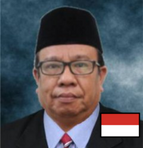
Assoc. Prof. Dr. Yusdani, M.Ag.
Advisory Editor
Department of Islamic Law (Doctor), Faculty of Islamic Studies, Universitas Islam Indonesia, Indonesia
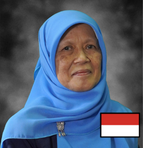
Assoc. Prof. Dr. Junanah, M.I.S.
Advisory Editor
Department of Islamic Studies (Master), Faculty of Islamic Studies, Universitas Islam Indonesia, Indonesia

Assist. Prof. Shaimaa Magued, Ph.D.
Advisory Editor
Faculty of Economics and Political Science, Cairo University, Giza, Egypt
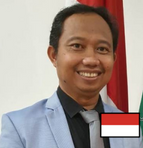
Prof. Dr. Phil. Al Makin, S.Ag., M.A.
Advisory Editor
Department of Sociology of Religion, Faculty of Ushuluddin, Universitas Islam Negeri Sunan Kalijaga, Indonesia
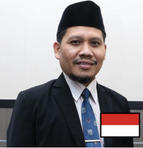
Prof. Dr. Muhammad Irfan Helmy, M.A.
Advisory Editori
Department of Hadith, Institut Agama Islam Negeri Salatiga, Indonesia

Assoc. Prof. Peter Smith, Ph.D.
Advisory Editor
Mahidol University International College, Mahidol University, Thailand


Prof. Ihsan Yilmaz, Ph.D.
Advisory Editor
Alfred Deakin Institute for Citizenship and Globalisation (ADI), Deakin University, Melbourne, Australia

Rev. Prof. Kwangsoo Park
Advisory Editor
Research Center of Religions, Wonkwang University, Iksan, South Korea

Assoc. Prof. Dr. Esita Sur
Advisory Editor
Department of Political Science, Scottish Church College, Kolkata, India

Dr. Charles Prempeh
Advisory Editor
Centre for Cultural and African Studies, Kwame Nkrumah University of Science and Technology, Kumasi, Ghana
Editorial board members of the journal are experts in many aspects of religious studies. Their appointment was based on initial proposal from Program Studi Ilmu Agama Islam Program Magister and approved by Fakultas Ilmu Agama Islam.
Some of them are experts that previously been involved in academic activities in the university or the faculty or the study program. Prof. Auda, for example, was a supervisor of a Ph.D. student in the faculty. He also was involved in a discussion in the faculty and a conference held by the faculty. Other members, Prof. Nor and Prof. Ismail, also involved in this conference that was held offline back in 2018.
In some cases, communication with editorial board members can also be in the form of official visit to their campus, especially that were close to Indonesia.
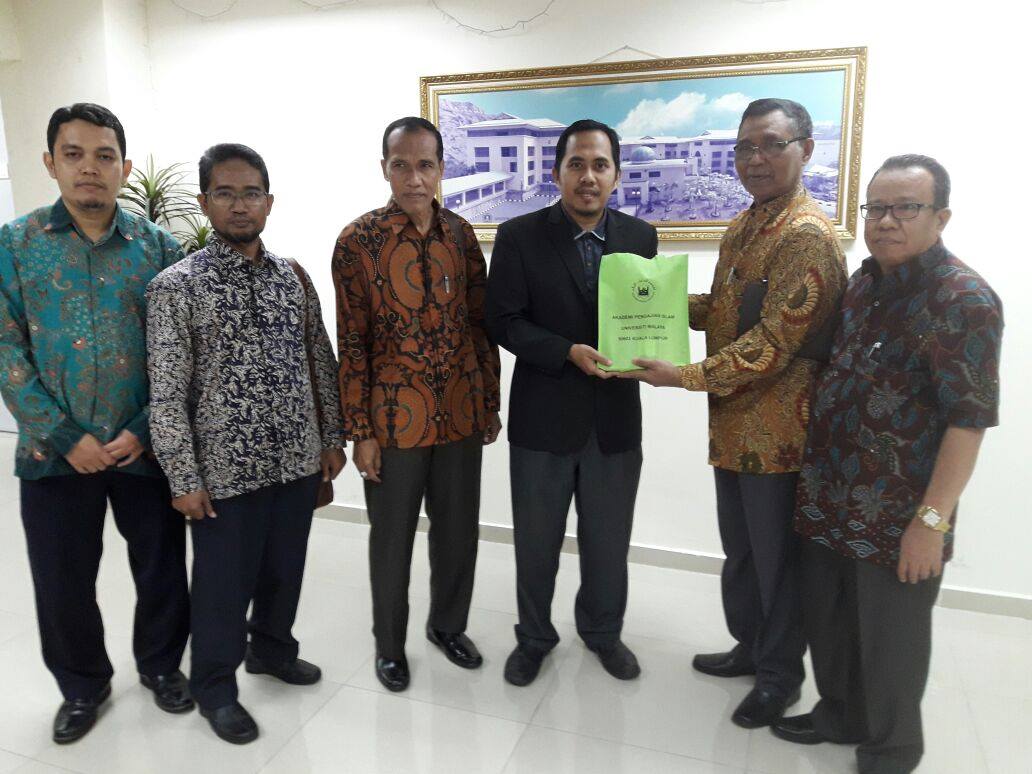
Visit to Editorial Board Member Prof. Nor in Universiti Malaya
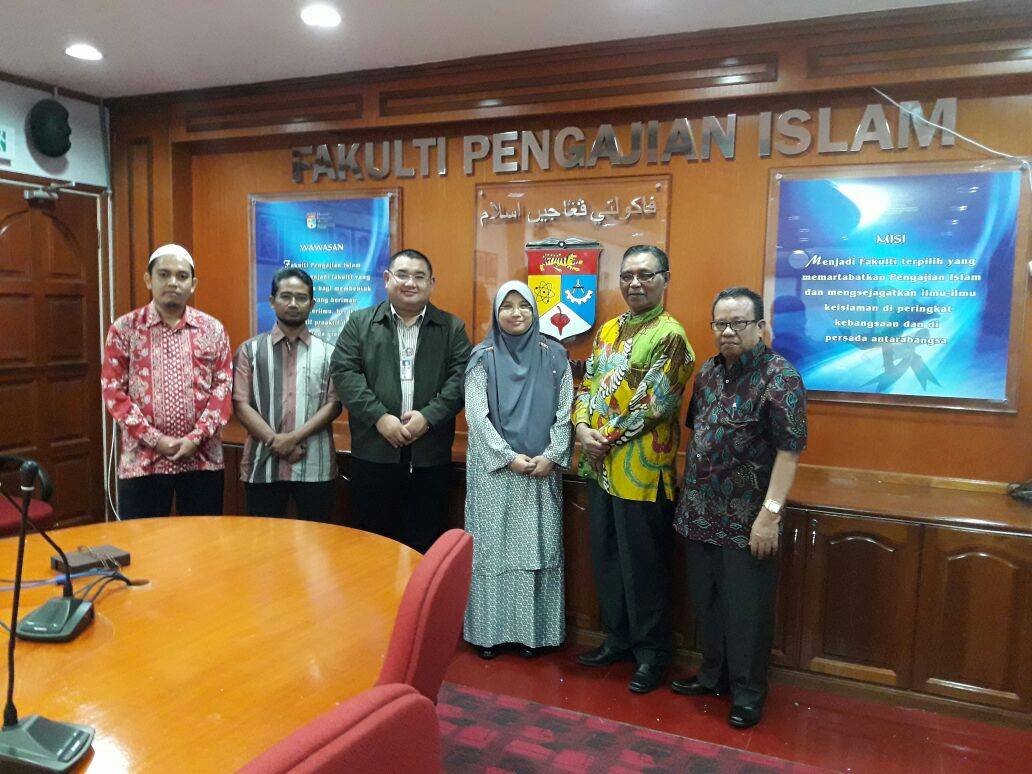
Visit to Editorial Board Member Prof. Ismail in Universiti Kebangsaan Malaysia
Hafiz Mekić was also once involved in a stadium generale and a conference hel virtually in 2022. Based on these activities, the faculty approaced him for position in editorial board of the journal. Other approach used by the journal to ask potential editorial board members was based on review or submission. Editor-in-chief can view an expert willingness to collaborate from the interaction as a reviewer or as an author. Once an expert agree to join the board, official letter was prepared and signed by the Dean.
Some editorial board members are professors and researchers in the faculty. This approach should be understood as part of the faculty efforts to maintain journal's quality as well as to provide professors and researchers in the faculty international academic exposures and experiences.
The list of editorial board members as well as associate editors in the online version is updated regularly. At some point, when a professor retired or passed away, the name will be dropped from online version. The name can still be found on printed version of the issue. The journal's website provide the full names and affiliations of the editorial board members as well as associate editors. Addtional information such as Google Scholar Profiles, ORCID, and Scopus Author ID were also presented. The email address of the editorial board members as well as associate editors is enclosed to avoid any inappropriate usage.
The list of editorial board members of the journal is fulfilled only by experts trully agree to join. The journal never use the names of the experts for potentially illegal or predatory activities in academic publishing.
12. Editorial Team/Contact Information
Journals should provide the full names and affiliations of their editors as well as contact information for the editorial office, including a full mailing address, on the journal’s website.
Adoption and implementation of the above principle and practice in Millah: Journal of Religious Studies can be explained as follow:
Current editorial team of the journal is as follow:

Assist. Prof. Yuli Andriansyah, S.E., M.S.I.
Editor in Chief
Department of Islamic Economics (Bachelor), Faculty of Islamic Studies, Universitas Islam Indonesia, Indonesia
Associate Editors

Assist. Prof. Dr. M. Roem Syibly, S.Ag., M.Ag.
Managing Editor
Universitas Islam Indonesia, Indonesia

Assist. Prof. Dzulkifli Hadi Imawan, Lc., M.Kom.I., Ph.D.
Managing Editor
Universitas Islam Indonesia, Indonesia

Visiting Assist. Prof. Siyamak Zabihi-Moghaddam, Ph.D.
Section Editor
Western Washington University, United States

Assoc. Prof. Dr. Suyadi, M.Pd.I.
Section Editor
Universitas Ahmad Dahlan, Indonesia
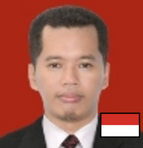
Assist. Prof. Dr. Hasan Baharun, S.Pd.I., M.Pd.
Section Editor
Universitas Nurul Jadid, Indonesia

Prof. Dr. Abd. Rachman Assegaf, M.Ag.
Section Editor
Universitas Islam Negeri Sunan Ampel, Indonesia

Dr. Muhammad Azhar Abbasi
Section Editor
Department of Islamic Studies, Minhaj University Lahore, Lahore, Pakistan

Rev. Assoc. Prof. Dr. Sonny Eli Zaluchu, M.Th., CIQnR
Section Editor
Department of Theology (Academic) (Doctor), Sekolah Tinggi Teologi Baptis Indonesia, Semarang, Indonesia
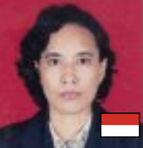
Assoc. Prof. Rachel Iwamony, Ph.D.
Section Editor
Department of Theology (Academic) (Doctor), Universitas Kristen Indonesia Maluku, Ambon, Indonesia

Dr. Ade Yamin S.Sos., M.A.
Section Editor
Department of Akhwal Syakhsiyah (Bachelor), Institut Agama Islam Negeri Fatahul Muluk, Jayapura, Papua, Indonesia

Assoc. Prof. Mohammad Taufiq Rahman, S.Ag., M.A., Ph.D.
Section Editor
Department of Religious Studies (Master), UIN Sunan Gunung Djati Bandung, Bandung, Indonesia
Editor in Chief is supported by associate editors to ensure journal's standard and quality are maintained properly. Managing Editor is an editor from the faculty who involves in the journal intensively with Editor in Chief. Section Editor is an editor from other institution who involves in the journal based on particular submission related to the expertise or the topic. Managing Editor was appointed directly by the Dean based on proposal from the study program as a set of team with Editor in Chief. While Section Editor was appointed by Editor in Chief or Managing Editor after agreement to join the journal. Official letter for each Section Editor is signed by the Dean.
Inquiries regarding the journal can be addressed to:
Gedung K.H. A. Wahid Hasyim, Kampus Terpadu UII, Jl. Kaliurang KM 14,5, Besi, Sleman, DI Yogyakarta, Kode Pos 55584
085369607374
The contact information can also be viewed here.
Business Practices
13. Author Fees
- If author fees are charged (such as article processing charges, page charges, editorial processing charges, language editing fees, colour charges, submission fees, membership fees, or other supplementary charges), then the fees should be clearly stated on the website.
- If there are no such fees, this should be clearly stated.
- Author fee information should be easy to find and presented as early in the submission process as possible.
- If the journal is likely to implement author charges in the future, this should be stated.
- If waivers are available for author fees, this information should be stated clearly.
- Waiver information should include:
- Who is eligible for a waiver.
- Which author(s) of the group must be eligible for the waiver to apply.
- When and how to apply for a waiver.
- Author fees or waiver status should not influence editorial decision making, and this should be clearly stated.
Adoption and implementation of the above principle and practice in Millah: Journal of Religious Studies can be explained as follow:
The journal charges only article processing charge of Rp3,000,000.00 or US$200. This charge is applied only after a submission is accepted.
Author should understand that willingness to pay does not guarantee the acceptance of a submission.
Waiver policy of 50% of article processing charge will be provided for author from countries categorized as Low-Income Economies by the World Bank:
| Afghanistan | Guinea-Bissau | Somalia |
| Burkina Faso | Korea, Dem. People's Rep | South Sudan |
| Burundi | Liberia | Sudan |
| Central African Republic | Madagascar | Syrian Arab Republic |
| Chad | Malawi | Togo |
| Congo, Dem. Rep | Mali | Uganda |
| Eritrea | Mozambique | Yemen, Rep. |
| Ethiopia | Niger | Zambia |
| Gambia, The | Rwanda | |
| Guinea | Sierra Leone |
Author with waiver policy should understand that the waiver will not influence editorial decision.
Article processing charge will not be used for editorial team salary to ensure independence and integrity in editorial decision.
14. Other Revenue
Business models or revenue sources should be clearly stated on the journal's website.
Examples include author fees (see section 13), subscriptions, sponsorships and subsidies, advertising (see section 15), reprints, supplements, or special issues.
Business models or revenue sources (for example, reprint income, supplements, special issues, sponsorships) should not influence editorial decision making.
Adoption and implementation of the above principle and practice in Millah: Journal of Religious Studies can be explained as follow:
The journal has no other revenue.
15. Advertising
Journals should state whether they accept advertising. If they do, they should state their advertising policy, including:
- Which types of advertisements will be considered.
- Who makes decisions regarding accepting advertisements.
- Whether they are linked to content or reader behaviour or are displayed at random.
Advertisements should not be related in any way to editorial decision making and should be kept separate from the published content.
Adoption and implementation of the above principle and practice in Millah: Journal of Religious Studies can be explained as follow:
The journal does not accept any advertisement.
16. Direct Marketing
Any direct marketing activities, including solicitation of manuscripts, that are conducted on behalf of the journal should be appropriate, well targeted, and unobtrusive. Information provided about the publisher or journal should be truthful and not misleading for readers or authors.
Adoption and implementation of the above principle and practice in Millah: Journal of Religious Studies can be explained as follow:
At this moment, the journal does not send any direct marketing to any parties.
The journal has been famous among researchers in the field for being nationally accredited SINTA 2 and internationally index by abstracting services. In the last two years, 254 submissions were received and 44 of them were accepted.
